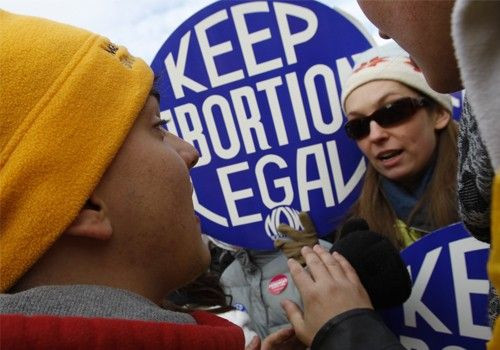Virginia Abortion Clinic Regulations May Lead to Closure of Some Facilities

The Virginia Board of Health has approved new regulations for abortion clinics, a move that critics say was done to limit access to terminations and may lead to the closure of some clinics.
On Thursday, the board voted 12-1 to pass temporary regulations that will remain in effect until permanent guidelines are developed.
James Edmondson was the only member to vote against enacting the regulations. He suggested a series of amendments aimed at relaxing the draft regulations, especially for existing abortion clinics, according to The Associated Press, but they were unsuccessful. Afterward, he reportedly said he believes the regulations as written will likely put some clinics out of business.
The regulations will require clinics -- even those that provide abortion services via pills instead of surgery -- to be equipped with operating theaters, while also requiring that buildings must meet the same construction regulations designed for large hospitals.
Jessica Honke, policy director of Planned Parenthood in Virginia, told the British newspaper The Guardian that the new requirements may also threaten patient privacy because it allows any member of the health board to examine a patient's file.
Honke said the costly construction requirements will likely mean some of the Planned Parenthood centers in Virginia will no longer be able to provide medical abortions.
Some of our health centers provide only that and it would be very costly to make structural and architectural changes just to be able to provide the medication, the one pill you take at home, she said.
The measure also allows the state's health commissioner to suspend or revoke a clinic's license if it declares that health standards are not being met.
The regulations are being backed by the anti-abortion group the Family Foundation, which claims it is only concerned with protecting the health of women seeking abortions.
Without adequate regulations, there is simply no way for anyone to know what's happened inside these clinics, Chris Freund of the Family Foundation told the health board hearing, according to multiple reports.
Since legislative efforts to restrict abortion services have consistently been struck down by state courts, many politicians have sought additional health regulations as a means of restricting access to the procedure.
Earlier this year, Kansas introduced health regulations that led to the closure of two of the state's three abortion clinics. Jordan Goldberg, a lawyer at the Center for Reproductive Rights, told The Guardian that regulations in South Carolina and Texas have been able to limit access to abortions by effectively requiring the construction of new clinics.
© Copyright IBTimes 2025. All rights reserved.





















